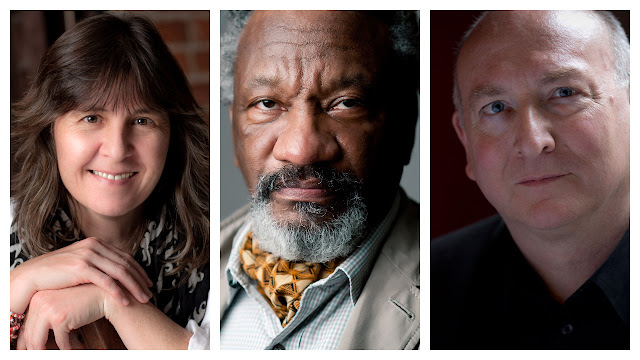An Opera Talk with the creative team of Orpheus and Eurydice
For the creative team behind Seattle Opera’s Orpheus
and Eurydice, staging the work in 2022 was a question of trusting the
source material. Even the oldest works are remarkably adaptable if you read
the text carefully. “Composers are more flexible than we think,” says director Chía
Patiño. “I think it's a mistake when we put a piece in a museum. Because the
composer would be the first one to say: ‘That works better. Change it!’”
That ethos led the creative team to reconsider even the most
basic elements of the opera. For one, this production gives Eurydice a level of
agency she is often denied. Choreographer Donald Byrd says that in many productions,
“we don't know what [Eurydice] is thinking—we don't even get a glimpse of it. […]
It's all about [Orpheus] obsessing over her.”
Seattle Opera’s production, on the other hand, asks if
Orpheus is right to rescue Eurydice from the afterlife at all. Does Eurydice really
need saving? Chía Patiño thinks not: “For me it was very important that Orpheus
loves [Eurydice] the way she needs to be loved, not the way he needs to love
her. So that's the way we've been turning the story around: how Orpheus is a
better lover by letting her die.”
To explore these implications, the creative team changed the
opera’s ending. In Gluck’s original, the god Amore steps in to save Orpheus and
Eurydice from their doom. (It’s a classic example of a deus ex machina.)
But Seattle Opera’s production does away with this intervention, allowing
Eurydice to die on her terms. “We were immediately on the same page,” says conductor
Stephen Stubbs. “We completely respect what Gluck did—it's an absolute
masterpiece. We're not touching the basic torso of the piece. But the stupid
happy ending we didn't need. So we just cut that. We replaced it with something
really beautiful and a surprise for the audience when we get there.”
The result is a vital new adaptation that can help us process
our collective grief. “It just feels that death has been dancing on top of this
planet. I don't think I know anybody that hasn't experienced death these last
two years,” says Patiño. “We can be so selfish that we want somebody to live
when it's their time to die. […] Sometimes it's time for people to go.”
But that doesn’t mean you should expect a depressing production.
Patiño promises the story is optimistic at its heart: “It's this last question
of, ‘If you know what's best for the one you love, do you do that which is best
for [them], or that is best for you?’ For me, the best Orpheus is the one that
chooses what's best for Eurydice. […] I need to know that he loves her so much
that he chooses what is good for her. I find that very redeeming. For me,
that's an incredibly optimistic, love-full, tender story.”
You can watch the rest of the conversation on YouTube or hear it on the Seattle
Opera Podcast. To learn more about upcoming Opera Talks, visit seattleopera.org/classes-camps-clubs/for-adults/opera-talks/.




No comments:
Post a Comment